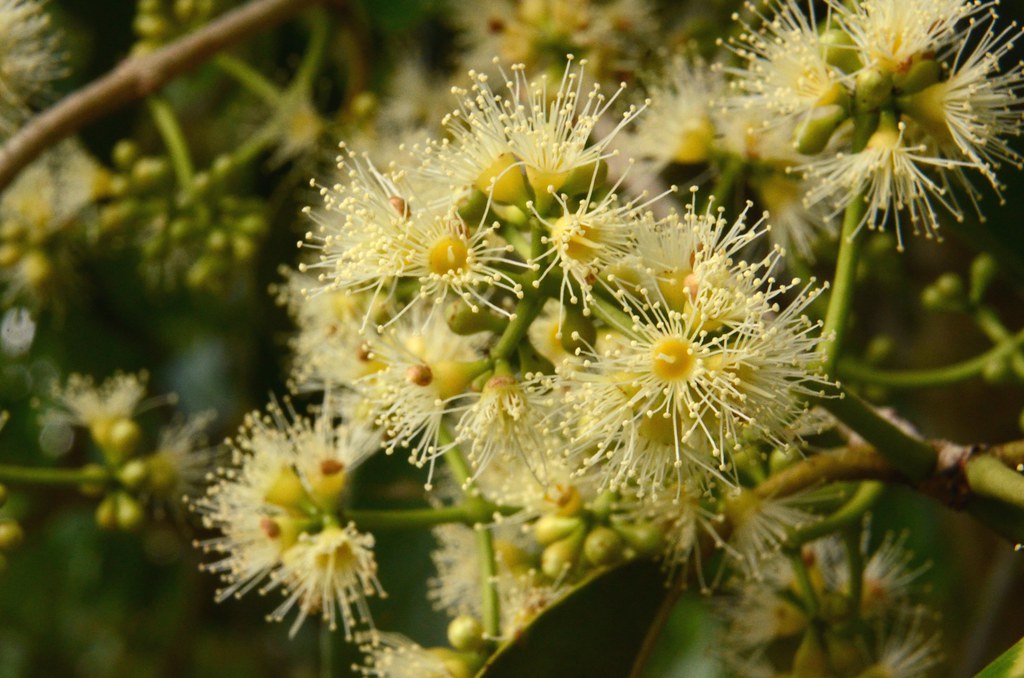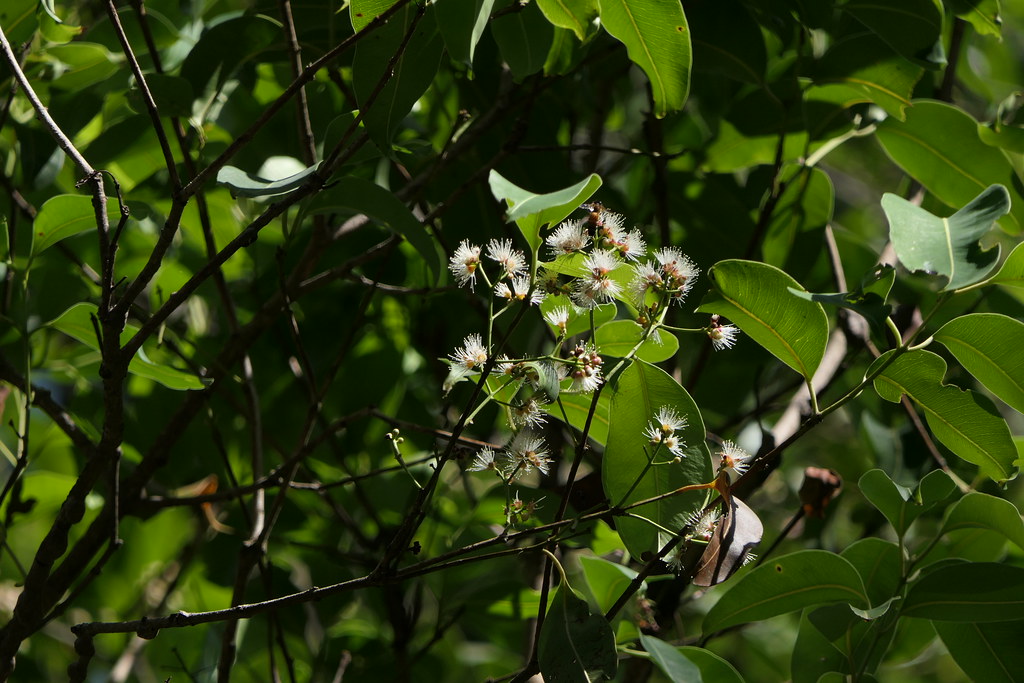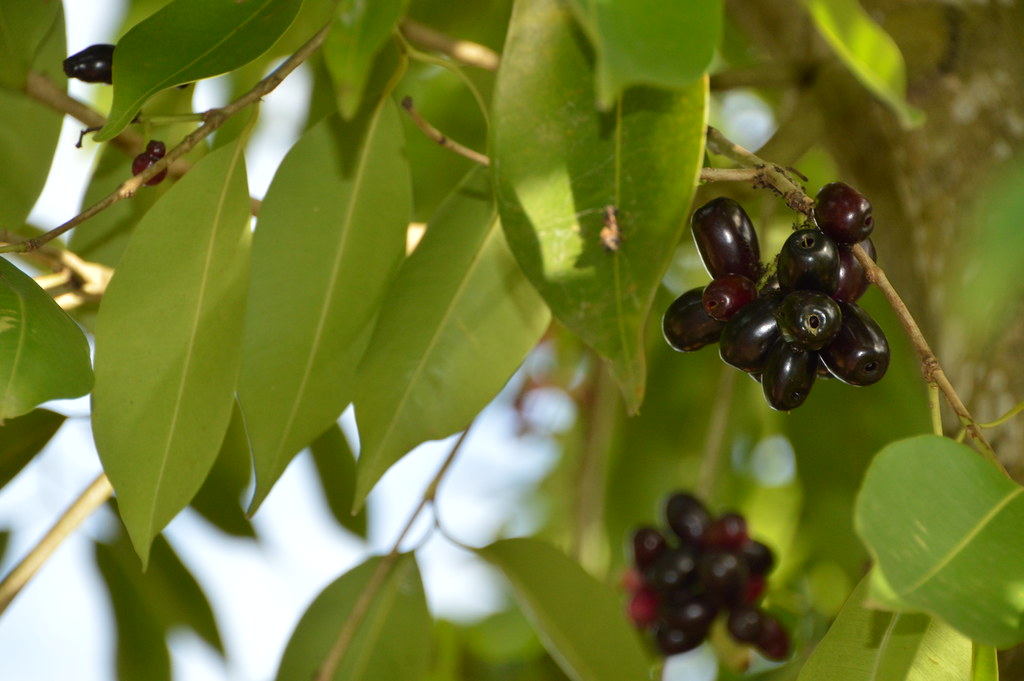Syzygium cumini (L.) Skeels
Scientific Name: Syzygium cumini (L.) Skeels
• Family: Myrtaceae
• Common Name: Java Plum, Jamun, Indian Blackberry
• Malayalam Name: Njara, Njaval, Kattunjaval, ഞാറ, ഞാവൽ, കാട്ടുഞാവൽ
• Tamil Name: நாவல் Naval
Synonyms:
• Syzygium cumini has been referred to by several other names in botanical literature:
o Eugenia cumini L.
o Jambosa cumini (L.) M.A. K.
________________________________________
Description:
Syzygium cumini, commonly known as Java Plum or Jamun, is a tropical tree native to the Indian subcontinent. It is a medium-sized tree that can grow up to 30 meters tall. The tree has glossy, evergreen leaves and produces small, fragrant white flowers that develop into round, purple-black fruits. These fruits have a sweet-sour taste and are typically consumed fresh, dried, or used in beverages, jams, and sauces. The tree is known for its medicinal properties and is widely cultivated across tropical and subtropical regions.
________________________________________
Medicinal Uses:
1. Antidiabetic:
o Syzygium cumini is traditionally used for managing diabetes. The seeds, leaves, and bark are believed to help lower blood sugar levels. Jamun seeds, in particular, are rich in compounds that can help control diabetes by improving insulin sensitivity.
2. Digestive Health:
o The fruit, bark, and seeds of Syzygium cumini are used to treat digestive disorders such as diarrhea, dysentery, and indigestion. The fruit is also used as a mild laxative.
3. Antioxidant:
o The fruit and seeds of the tree are rich in antioxidants, which help combat oxidative stress and support overall health. They are believed to help in preventing premature aging and lowering the risk of chronic diseases.
4. Anti-inflammatory:
o The bark and leaves are used in traditional medicine to reduce inflammation, making them useful in treating conditions like arthritis and muscle pain.
5. Antibacterial and Antifungal:
o The plant’s various parts, including leaves, seeds, and bark, have shown antibacterial and antifungal properties. It is commonly used to treat skin infections, wounds, and fungal conditions.
6. Oral Health:
o The leaves and seeds are often used in traditional medicine to treat oral infections and diseases like gingivitis, mouth ulcers, and bad breath.


